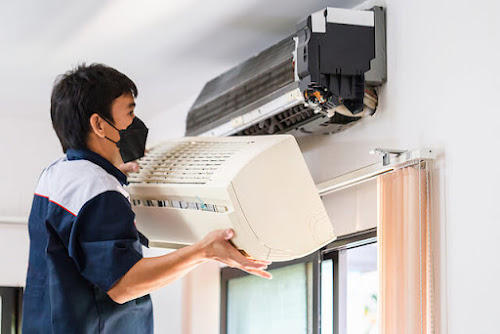The Role of Insulation in AC Efficiency
Understanding the Basics
Before we dive into the relationship between insulation and AC efficiency, let's clarify what insulation is and how it works.
Insulation is a material that is used to slow down the transfer of heat. It serves as a barrier between the interior and exterior of your home, helping to maintain a consistent indoor temperature. Insulation materials, such as fiberglass, foam, or cellulose, are installed in various parts of your home, including walls, floors, and the attic.
How Insulation Enhances AC Efficiency
Thermal Barrier: Insulation acts as a thermal barrier, preventing the transfer of heat into your home during hot summer days. This means that when your AC system is running, it won't have to work as hard to maintain a cool indoor temperature because the heat from outside is less likely to penetrate.
Reduced Energy Consumption: A well-insulated home requires less energy to cool. When your AC unit doesn't have to run constantly or at full blast, it consumes less electricity. This leads to lower energy bills and reduced environmental impact.
Consistent Indoor Temperature: Insulation helps maintain a consistent indoor temperature. Without proper insulation, your home can become a hotbox during the day and a freezer at night. Good insulation ensures that your AC system can effectively regulate and maintain a comfortable temperature.
Minimized Heat Gain: Insulation doesn't just keep the heat out; it also minimizes heat gain from various sources within your home, such as appliances, lighting, and human activity. This means your AC doesn't have to compensate for internal heat sources, further improving efficiency.
Where to Insulate for Maximum Impact
To maximize AC efficiency through insulation, focus on these key areas:
Attic: Insulating the attic is one of the most effective ways to prevent heat from entering your home. A well-insulated attic can significantly reduce the workload on your AC unit.
Walls: Insulating exterior walls helps maintain a comfortable indoor temperature by preventing heat transfer through the walls.
Floors and Crawlspaces: If you have a raised foundation or a crawl space, insulating these areas can prevent heat from rising into your home.
Windows and Doors: While not traditional insulation, energy-efficient windows and doors with good seals can also contribute to a well-insulated home.
The Bottom Line
In the battle to stay cool during the summer months, your air conditioning system is your frontline soldier, but insulation is the fortress that supports it. Proper insulation can significantly enhance AC efficiency, reduce energy consumption, and keep your home consistently comfortable. So, if you're looking to upgrade your home's cooling system, don't forget to give your insulation the attention it deserves. It's a wise investment that pays off in both comfort and savings.

Comments
Post a Comment